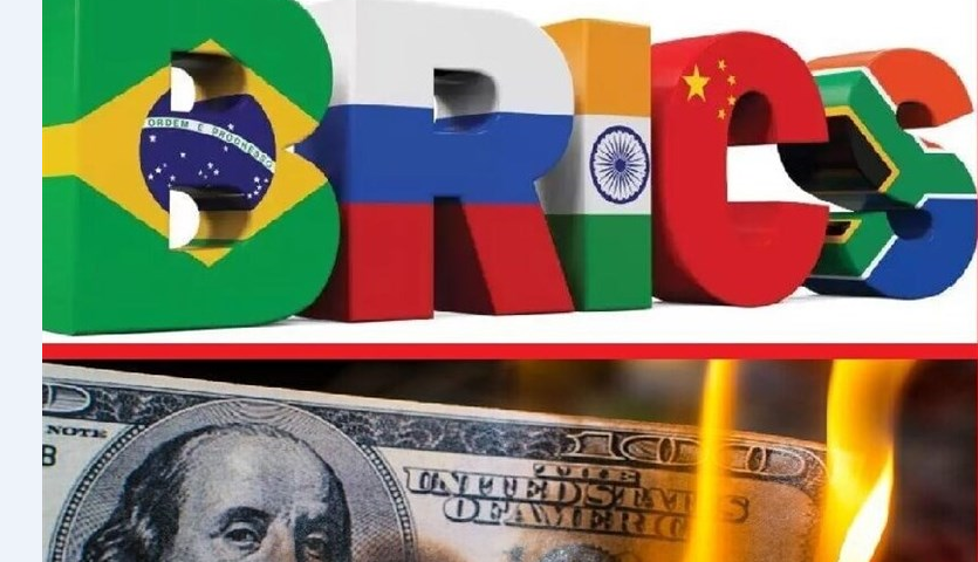
Moscow, April 2 (RHC)-- The BRICS bloc of emerging economies is considering developing an independent payment system based on digital currencies and blockchain to reduce reliance on western financial systems. Announcing the plan last month, Russian presidential aide Yury Ushakov said creating an independent BRICS payment system is an important goal for the future, which would be based on state-of-the-art tools such as digital technologies and blockchain.
“The main thing is to make sure it is convenient for governments, common people, and businesses, as well as cost-effective and free of politics," Ushakov told state news outlet TASS.
A coalition initially made up of Brazil, Russia, India, China, and South Africa, BRICS expanded for the first time since 2010 to include Egypt, Iran, Ethiopia, and the UAE at the start of the year, with 44 other nations having reportedly expressed interest in joining the bloc. Last year, BRICS nations stepped up trade in local currencies to strengthen their economies and counter the greenback.
Iran's Deputy Foreign Minister Mahdi Safari has said creating a unified currency in the BRICS group could be very effective. “By using national currencies, the process of eliminating the use of the dollar in commercial exchanges begins, and we are interested in continuing this process,” Safari said in January.
With significant foreign reserves, abundant natural resources, a combined population that accounts for over 40% of the global populace, and a shared vision for multilateral cooperation, BRICS has evolved into a cohesive group of economic prowess and geopolitical influence and a force to reckon with.
Since 2022 when Russia became the most sanctioned nation in the world in the wake of the Ukraine war, the bloc has seriously been pursuing the creation of a common currency to de-dollarize trade and circumvent Washington's weaponizing of the western financial system. However, a unified digital currency demands cohesive economic and monetary policies and given many disparities among the BRICS members, the idea appears rather far-fetched.
Experts say blockchain is currently a more viable and straightforward option that can help devise a cross-national payment system and lead to the financial evolution of the BRICS group as a new era in global economics. Crypto technology and blockchain is already being tipped as a potential alternative to the SWIFT system for cross-border payments, which is subject to blatant US meddling and manipulation.
Supporters say blockchain offers benefits like speed, transparency, lower costs, and enhanced security through encryption and decentralization. It also lessens reliance on the US dollar and similar currencies, helping BRICS nations fortify their economic resilience against external pressures.
Transparency and security is the hallmark of blockchain because it does not require a central authority and its state is maintained through distributed consensus.
Nevertheless, a key factor in the BRIC’S decision is autonomy and independence. By adopting a blockchain-based system, BRICS nations can maintain monetary policy autonomy while benefiting from shared technology prowess.
Reserve, settlement and unit of count are among of the characteristics of traditional money. By accepting the dollar as an international currency, countries of the world have exposed themselves to the monetary policies of the American Federal Reserve. This means if the Federal Reserve were to print money to make up for financial imbalances and budget deficit, the domestic inflation of the United States would increase and the value of the dollar would be affected as a result.
In other words, changes in U.S. policies and the dollar rate increase or decrease inflation in other countries. Hence, BRICS countries are looking for a means of settlement to cushion their finances against the effects of changes in American monetary policies.
Setting up an independent system on the blockchain platform is an important event. BRICS already accounts for a third of the world's economy; if other countries use the system, the world will witness a sea change in global transactions marked by the decline in the dominance of the US dollar.
In terms of economic, political and legal integration, the system is very important since cryptocurrencies can be used throughout the world, as they do not refer to national currencies. Moreover, investors are encouraged by high income without taxes and control.
Some BRICS members such as Russia and Iran depend on the sale of oil and gas for their national revenues. Developing digital technologies can help to reduce their dependence on natural resources.
Moreover, the use of digital technology can significantly reduce the cost of monetary circulation given that unlike traditional money, the crypto technology does not involve the issuance of coins or banknotes and the costs of production and protection against forgery are equally reduced.
Last but not least, the shift to a blockchain and crypto-based international payment system by the BRICS is a pragmatic middle ground that doesn’t directly challenge the West, allowing major neutral nations such as India and Brazil to join the wagon without qualms.

